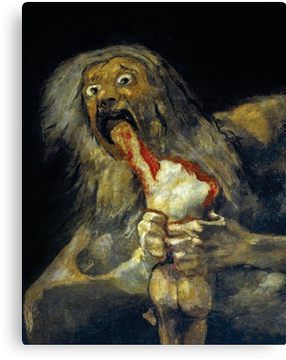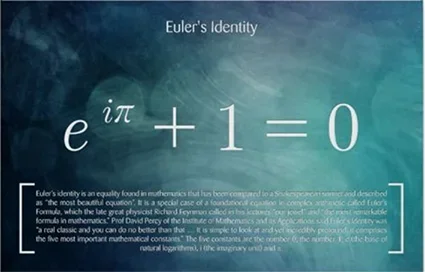Ren
Seeker at heart
- MBTI
- INFJ
- Enneagram
- 146
Beauty is simple. It's nailing the core principles that play to our values.
What kinds of values? Individual values, socio-cultural values, universal values...?
Beauty is simple. It's nailing the core principles that play to our values.
For me beauty is a feeling. There is beauty all around us in different forms. In the nature, little moments of laughter or tears, birds chirping outside, rain.. Feeling beauty through love, sorrow or humor. So many beautiful things. Beauty is a true connection to your soul which connects to the universe. I believe beauty starts from the inside.
I can't explain it more but I tried haha.
I have to add that the expression ‘just right’ really doesn’t do justice to how I experience it. There is a numinous quality to something or someone beautiful that is part of that feeling - inferior Se gives them a magical glow sometime.
Beauty is that which pleases the senses.
I'm thinking mainly genetics here, and maybe an appreciation for what we've come to accrue over the years. There's a reason why we see beauty in a pretty face, a situation, or a good answer. There's something there that resonates with our values.What kinds of values? Individual values, socio-cultural values, universal values...?
I'm glad you mentioned this, flower! I agree that beauty is — at least in part — a feeling. I think we're missing something as long as we don't mention this. When you say that beauty "starts from the inside", do you mean that you can bring about beauty from within yourself? Or do you still need an external 'stimulus' of some sort, even though the feeling itself is internal?
Hi John, I am very interested in this "numinous quality" which you are referring to here. I personally am convinced, though I am not quite sure how to articulate it, that this "quality" contributes to making a beautiful thing beautiful; that it is part of the essence of the beautiful, as opposed, for example, to the merely pleasant, attractive, entertaining, etc. Do you think there might be a way of rationalizing this numinous quality, or is it for you akin to a mystical experience, impervious to descriptive scrutiny?


Would you be willing to hold that nutella is beautiful? It certainly pleases my senses.
I like this. Very well said.It is an experience of transcendence - not in a controversial philosophical sense, but in a surprising incremental awareness of a greater self within us.
For example, it seems to me that beauty is not as of necessity bound to pleasure, entertainment, feel good feelings. Some forms of beauty seem to be tied up with the dark side too - the wild spirits of the night that seem to attract people by the millions. It might sound self-contradictory, but intense ugliness can be seen as holding a deep beauty as in some of Goya's paintings for example. The exquisite expression of a dark feeling or concept lies at the heart of it, with a frisson of fear and an echo in our own shadow that awakens us, even shakes us up in some way to a deeper awareness. This is consistent with the ideas I was suggesting above.
Thanks for your comments Reverist. I haven’t seen you around the Forum for a while - how are you doing? I’ve missed your insights.I like this. Very well said.
I agree beauty is not bound just to what feels good or entertains. I think it is tied to an intense response, interest, or appreciation that, for whatever reason, creates a positive impression on a person's senses. Someone can find an item or experience sad, ugly, or grotesque, but derive some kind of positive impression, and I can see how it can be considered beautiful. It's quite subjective as it would be driven by the individual's senses and whatever drives their interest. I can also see how a negative impression could cause disgust and someone can be revolted by something, or unable to find or appreciate the beauty in it. Perhaps this explains how someone can see a person as beautiful, but have a distaste for them or be unattracted to them because, despite the fact that their senses are pleased, the impression is negative.
Thanks for your comments Reverist. I haven’t seen you around the Forum for a while - how are you doing? I’ve missed your insights.
Hi guys,
Lately I've been quite interested in the philosophical field of aesthetics, which is usually defined as "the branch of philosophy concerned with the nature and appreciation of beauty." Which leads to the following question: what exactly is beauty? How do we understand it? People have an intuitive understanding of what the word beauty refers to, but tend to disagree wildly on how to define it.
It would be cool to hear your thoughts and hopefully arrive at a satisfactory definition of what beauty is.
Before I (hopefully) respond to the more recent posts later today: I came across this passage from an essay by Heidegger yesterday. Here it is:
“Thus in the work it is truth, not only something true, that is at work. The picture that shows the peasant shoes, the poem that says the Roman fountain, do not just make manifest what this isolated being as such is—if indeed they manifest anything at all; rather, they make unconcealedness as such happen in regard to what is as a whole. The more simply and authentically the shoes are engrossed in their nature, the more plainly and purely the fountain is engrossed in its nature—the more directly and engagingly do all beings attain to a greater degree of being along with them. That is how self-concealing being is illuminated. Light of this kind joins its shining to and into the work. This shining, joined in the work, is the beautiful. ” M. Heidegger, ‘The Origin of the Work of Art’
I found this video very interesting Ren and it feels like you are on to something with the concept of giving. The sort of questions it raises for me are:Here is a video today I made on the topic, for those interested
I found this video very interesting Ren and it feels like you are on to something with the concept of giving.
How can something be giving to one person and not to another? We don't agree at all on whether something has beauty or not - I find the Goya I posted earlier in the thread quite beautiful in its grotesqueness, but many people would disagree.
It seems to me that the elegence of presentation of something functional can be filled with beauty purely because of the way it presents its functionality - there is a reason that so many people are in love with steam locomotives and cars for example, though steam engines are no longer used as primary sources of power these days. You referred to this possibility in the video - I guess what I'm saying is that the very way some functional things are given can itself be beautiful. The often used phrase 'the beauty of this solution ....' comes to mind too in this context. But maybe I'm fearing dichotomy where none exists - why should something not be giving through the beauty of its givenness?
Jung's insights here give us a common ground for all people to be able to identify with numinous experiences completely independently of the controversial issues of whether gods, or nirvana are meaningful or not, etc. It is an experience of transcendence - not in a controversial philosophical sense, but in a surprising incremental awareness of a greater self within us.
